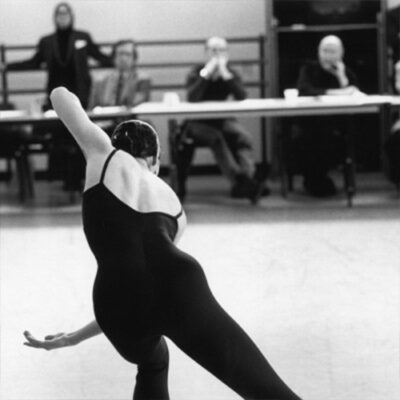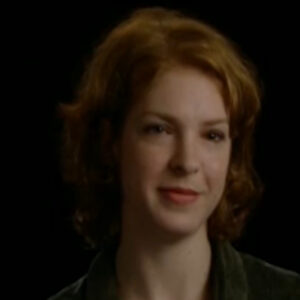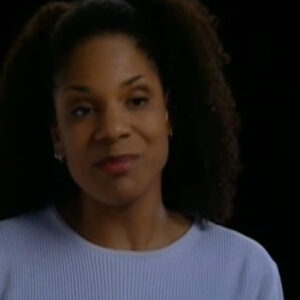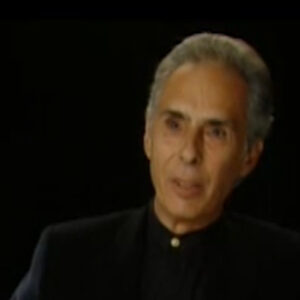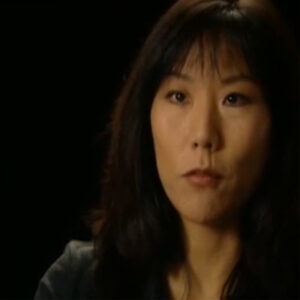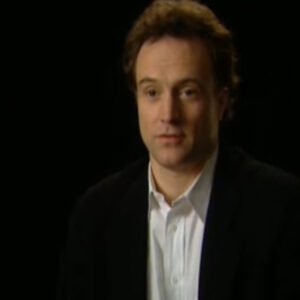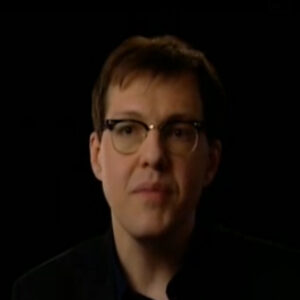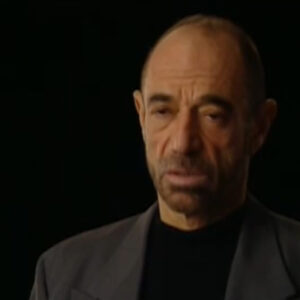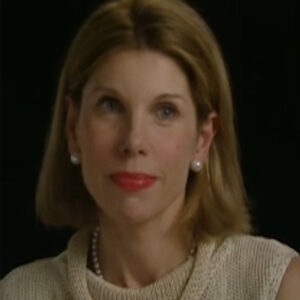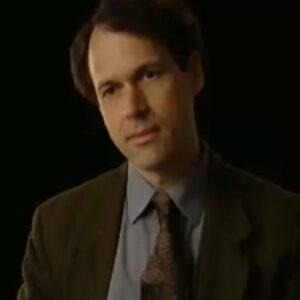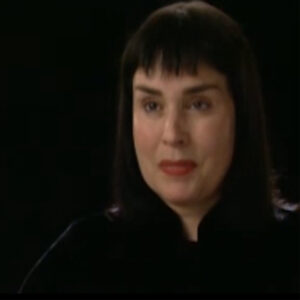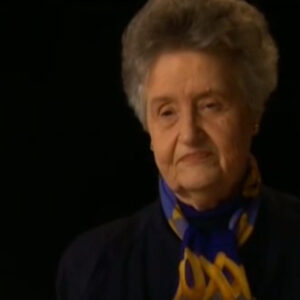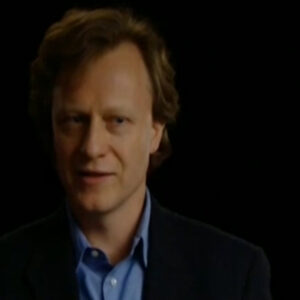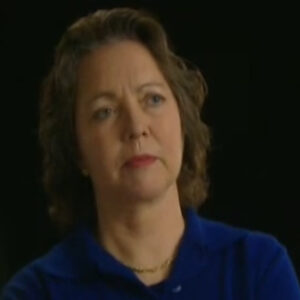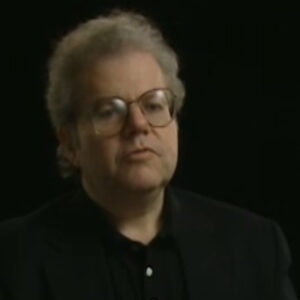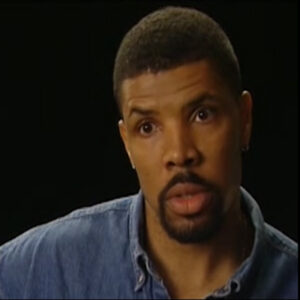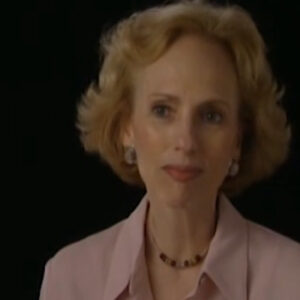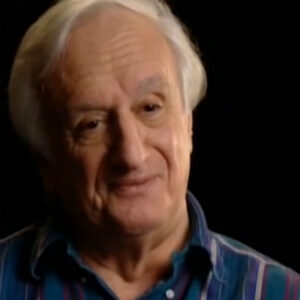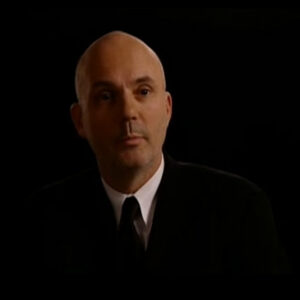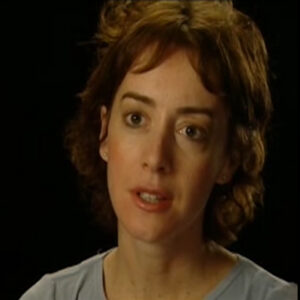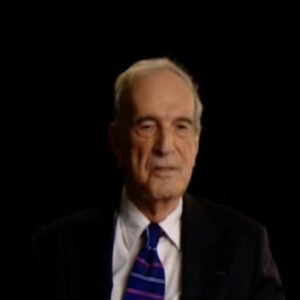Speaker Well, I had no idea really what I was getting into. And as I said, this group was together for two years and they had already formed their bizzaro bonds of insanity because we had come at a lot of them were very young, just out of high school. You know, just from all over the United States. And they were thrust onto the streets of New York. Literally, there were no dorms. There was no anything. So for two years, they were struggling to survive, even though some of them a lot of them, I think, had scholarships. But still, they were faced with New York City as 18, 19 year old kids out of high school, some of them. So their bonds had already formed. And the intensity of Juilliard was amazing. It was the first class. It was an outrageous class. I mean, it was also the times of of sort of unrest politically. So there was there was it it was not a sedate place when I got it and end it. And in 1970, when I arrived to there was already the beginnings of what actors do, which is they vie for the same part. And so I was a girl. I came in with Kevin Kline and David Stiers, and I was the only girl that entered this group that was already formed. So I wasn’t exactly love to write out. And I don’t think I love them back right out either. I mean, it was just it was a very unsettling. I wasn’t sure what I was getting into. And I remember thinking, what zoo have I come to?
Speaker That was my first impression after Grover, because it was very intense. I had never taken dance classes or movement classes. I was told I couldn’t walk, I couldn’t talk, I couldn’t speak. And certainly trying to do all three at the same time was an impossibility at the time. And I was also cast in a lead in a Jacobean drama. So it was pretty amusing.
Speaker It was pretty bad. The first year I was really a terrible actress and.
Speaker But it was that that was my first impression of Juilliard. But the the school itself ultimately and going into the acting company was, I think, an incredibly vibrant artistic time, which I didn’t realize at the time how incredibly special a period of theater it was for me. And I think for the United States as well, for I mean, get grandiose. But I do think that theater was a vibrant force in our society at that time. And the people like housemen had it in their blood in ways that ice miss today.
Speaker What was what was Michael Cohen like at that time in your life or kind of now head of the Troubles? Right. The husband to them, right?
Speaker Well, again, I mean, I was I was new to the theater.
Speaker I mean, he terrified me. He terrified me. And he directed Women Beware Women, this play that this Jacobean that I had no idea, no idea how to attack. So he he scared me totally.
Speaker And.
Speaker And this was another person who, again, has a history of theater that I had to really play catch up in terms of learning a language and a sensibility of theater that I really didn’t really know much about. So that was. And I’m I’m grateful to the not only to Michael, but to the different people that we came in contact with because of housemen. We had such incredible group of directors coming to deal with us, all professionals and time working people in the theater themselves in a very vibrant New York spirit theater. So we were able to be in school and see theater. That we were aspiring to. That was an ongoing not just Broadway, but off Broadway and off off Broadway. There was a real world of theater. That was fantastic to be studying it and knowing that it was out there for us.
Speaker What was.
Speaker Housemen life with the group. How how did you treat all of you? How did you what did you think of him? How involved at that time?
Speaker Oh, he was incredibly. I mean, we were his children. I mean, he referred to us as his children. I mean, he also is a very was a very, you know, intimidating. Could be a very intimidating man.
Speaker I mean, he was in elected, you know, he knew more than you did.
Speaker I mean, he was a very intellect as an intellectually astute man. But he also I think and I’m not sure people know and he had a kindness about him that was really very touching. Which I don’t know that people talk of. I don’t know. Maybe they do. I my experience certainly was that he was very kind to me. He enjoyed the failings of his children. He enjoyed the vulnerabilities of his children. And he enjoyed nurturing us. And he could be alternately very severe and very almost standoffish. But he could also be incredibly father like. And he enjoyed our craziness as much as he said he wished that we would all grow up, you know, and or or be more intellectually savvy or smarter or whatever it is that he was constantly telling us that we should become. He enjoyed our personalities and he enjoyed the different personalities in the group because we were all ultimately very, very different. And you also had to deal with a lot of craziness. I mean, we were insane. We were in. We were insane in that we travel. Well, this is also when he became the acting company after we graduated in 1972.
Speaker We’ll talk a little bit about how that was the first approach. I mean, you thought you were going to school. You thought you were going to. Who came to you?
Speaker How did it even if it was happening.
Speaker This a when you talked to Norman, he has a steel trap of a mind and he’ll remember. Exactly. But my recollection was that we were sitting in he called a meeting I believe in and I’m Housemen Houseman and John has been called a meeting, I believe. I think there were already rumors that there was a scuttlebutt that we were going to be formed into a company. But then I ran. What I remember clearly is a meeting in one of the studios, room three or four, I believe it was at Juilliard where Housemen talked about how he couldn’t see just dispersing this ensemble that had been created for us, some of us before years, and some of us like David Kevin life at the three or four, two years.
Speaker But still, we had been together for at least two years doing these wonderful classic plays with directors from all over. And he couldn’t see, as he said all of a sudden, just dispersing us into the commercial world and pitfalls of New York. Los Angeles wasn’t very much talked about at the time, I don’t remember. And he wanted to keep us together and form an equity company. And I remember his using the term.
Speaker I am not asking for any monastic vows, but that it was something that he saw as a wonderful stepping stone for us and for not only just for us, but how wonderful for him, for New York theater also to have a company that had been together and had a common vocabulary and a common sensibility. And to show it in the real world, instead of just saying, this is the ivory tower of just school. Excuse me. So so that that was the that was my memory of being told that he had this dream of having a company and that he’d done it before.
Speaker And he is he was brilliant at inspiring people. And we did we didn’t have monastic vows. But I think I would say certainly ninety nine percent of us couldn’t think of a better plan. I mean, it was fantastic. We were thrilled. I mean, because we and certainly I never thought of my life as an actress in anything but the theater. And that, I think, is what Juilliard had the best of that world of theater. And especially at that time, it was so obviously a possibility to make your living and your life and your artistic life in the theater. You didn’t think of the. Television, I didn’t think about movies. I just thought that I would always work in the theater.
Speaker And in that sense, of course, things have really changed. I mean, what happened? What I mean in that sense. Talk about how vibrant.
Speaker We talk, you know, everybody sort of I think now people probably don’t know how they could have what. What was that? That that theater energy. Why was that so vibrant for you?
Speaker Well, first of all, I think there was a world off Broadway at the New York at the time in the early 70s. That certainly a view for me. I wasn’t married. I didn’t have children. There was. And you could make a good living and be involved in the theater without necessarily worrying about a career. You just. I don’t recall worrying that I wouldn’t work and worrying that I wouldn’t work in the theater, which is really quite amazing. I didn’t I didn’t necessarily think I was going to be a star. I didn’t even think about it. I just knew that I would work. And that was one thing also that was fantastic with what a husband had done for us, because in keeping us together with a company and introducing us and bringing directors in, working working directors, we left school and we left ultimately the company knowing so many wonderful people in the theater that we’re working. So there was also that sense of already we entered a community that we we belong to. It wasn’t like we were just now what do we do? Excuse me. We have all this training and now we’re just thrust to this world of the professional theater. It was all a continuum. We were in school. We worked with directors who we also auditioned for. Once we got out and it was all part of that world that we were we were we already were belonging to. And now with a sense of entitlement.
Speaker But just with a sense of this is an ongoing artistic life that we have chosen. And that was what housemen actually nurtured in us, the sense of the the great artistry of and great pride of being in the theater. And also, he was also a pragmatist. I mean, he people if we could make our living in the theater. And at the time, you could.
Speaker There was a kind of a sense of if you talk about some of the early classes of different teachers, you know that when you kind of, I guess maybe a year later uses history of the sense in the school of concept of classical training.
Speaker But yet it seems like your class, in a way, was trudging through the mistakes, figuring out as you went along what worked, what didn’t work, what did what was your sense of being classically trained at the time? I mean, was.
Speaker Well, I to this day, I don’t know that there’s any way to teach theater or acting other than to do it. I mean, yes, you need to work on your voice. You have to make yourself understood. You have to their technical requirements that can be worked on.
Speaker I guess what I guess I loved about the time that I was at Juilliard and the people that were there at Juilliard, there was. An amazing commitment to great place, to classical plays, to plays that really address humanity through drama. I mean, that’s basically to me what theater is, is an examination of the human condition through drama. And and there was also the sense that the play was the thing housemen believed in the play. I mean, I know he did all these innovative productions, but ultimately housemen and and many directors that we worked with.
Speaker Borst who Morrin? Jerry Friedman. Ellis grabbed the high. I mean, I don’t wanna leave anybody out, but I mean, those are the names that come that we did the plays. We didn’t we weren’t concerned in having a sound soundbite that would sell a great work of literature. We weren’t concerned in finding the latest cutting edge of doing a production. We did great place without embarrassment. We tried to tell the story and there was I think that is something to me that I am so grateful that I went to Juilliard for and that I was in this company about because there was really a sense of trying to figure out something that about humanity. Let’s be grand through place. And that was the stories we wanted to tell. We wanted to tell the stories of these place.
Speaker And what was the company relationship like? I mean, obviously, you go to school, if you people stay with these people, you travel on the bus with these people.
Speaker So just talk a little bit about me, because even now, to this day, you come in with class, you know the groups, the group philosophy. Right. Group two, we’re now following group 30.
Speaker I know. I have my walker. I’m group one with my walker.
Speaker What what did I mean? Why do you think they create this? This group philosophy worked for four years there at a time in a second year student is playing Romeo. The fourth year student is playing.
Speaker I really don’t know what happens now. I mean, it is it is completely as it was. So you but I mean, to you, you just still do plays only with your class.
Speaker Yeah. And my guess, certainly it’s now, but for me, for my experience, it was forming a company. It was forming that, you know, the word ensemble that is bandying about it. It’s a great ensemble cast. But I think there is something to be said about the trust of an ensemble, whether you hate each other or love each other. There is still I mean, it’s almost irrelevant if you can get along together on stage and you have a sensibility that attacks play the same way. So that to me, I really haven’t ever asked anybody exactly why we all stayed together and cars just or continued that. But it seemed to make sense to me that since we were formed in a company, there was that sense of it does work to develop a way of working, a way of delving into plays, a way of attacking rehearsals as a way of figuring out what you know about another person. The trust element of saying, if I do it this way one night and change it a little, they’re gonna trust me to either come along or just get off stage and say, what were you doing out there? You know, but there is a freedom that happens when you work together so closely with the same group of people. I mean, there’s a flip side that everybody starts getting typecast and you get bored and or you wish that you had a part that the other person had. And there’s also those dynamics that happened. Of course, you know, I always get cast as, why can’t I get. He always gets scares me, me, me, me. I mean, that happens. But the pure good reason is that the ensemble, if it works, could be quite exciting. And that’s what I think about why it’s a group, the Group one, group two.
Speaker And what would you sort of throw out kind of humorously? Everybody was crazy. It was crazy. It was they were it was a wild sea.
Speaker The naked, naked runners for God downing champagne or ban. It was a circular. You’ve probably heard this during the circular hotel where the elevator shaft where in the middle.
Speaker And and the idea, of course, was to prim and Catholic to do this. But I know they would go take off their clothes and run from one side of the elevator all the way around and pass the elevators streaking when the doors opened.
Speaker And it was a circular hotel. And then there were many naked runs for God episodes up in Saratoga where we had our summer house, and which they grace John Houseman in the middle of the night knocking on his door.
Speaker There there was there was an easy house. Well, that’s part of it. He loved.
Speaker He loved that sense of, oh, it’s wild. It’s wacky. It’s my children, you know. And so they at the same time would say, how dare you? You how do you let down your name and all this?
Speaker But he loved it. He loved it there. So. Wouldn’t Shane.
Speaker And then they could be gone.
Speaker I always I stayed for the record that every person that measured it says that, of course, I was not involved.
Speaker No, you will find people who will admit to it. You just haven’t found the people who really were the ringleaders of it. Maybe.
Speaker No, you had to be there. Well, they have to admit to it first.
Speaker Can you see in your work today when you’re doing a play.
Speaker You have those kind of moments where you go back or when you’re teaching those moments where I mean, how how much a part of you is what that and for you, it ended up being six years or how long your stay with the acting company, with that ensemble, those years that training has stuck with you. How’s you see it?
Speaker Well, I mean, now that I’m teaching up at Cal Arts and again, mainly with classics, it’s coming. It comes back to me, but it’s not a thing that is ever left. It’s I think it’s. It’s what you owe. Well, I always look for is that ability to really try to figure out what the play is about. I mean, it’s one thing that I love more than anything in terms of theater. I don’t know if I may ask answering your question, quite honestly, I think maybe I’ve gotten off the tangent, but. But what has what stays with me from Juilliard and the people that I work with, Juilliard and the acting company again is this. Trying to develop a three dimensional human being on stage, which can be very easily undermined in television. Not that I want to pooh-pooh television is just different. It’s a different it’s not even theor. It’s television. What happens in television is very different from the world that I thought I was buying into at Juilliard. I was buying into I love classical theater. And I don’t mean just Shakespeare. I mean great plays. And anyway, it could be written today if it’s a great play with three dimensional people. It’s I love it. I love trying to tell a story with a vision. And I feel very lucky that I had directors who attempted at least to tell a story, a story of the play with a vision, with a vision not imposed on it, but unearthed. From what was already written, and that is something that I think is what I look for all the time, even now, whether I’m teaching when I’m talking to students or anything, I do. I mean, unfortunately, I haven’t done theater hardly at all since my children were born because the life of the theater is not very compatible with family life. The weekends are taken up at the theater. Monday night is off and your children are home in the weekend. And I like putting my children to bed. So it’s I don’t do a lot of theater, but I miss it. I miss the potential and the possibilities that I know exist and that I was introduced to as a young kid through Juilliard, not always perfectly. And at the time, I think I resented probably what I felt was an infringement of my my creativity by being maybe directed in a certain way. But I every time I look back or have reason to reflect like now on Juilliard and my Juilliard acting company experience, I realize how incredibly lucky I was to have had a chance to work on so many classics at such a young age.
Speaker When you say the infringement is sort of like give a kind of a leading to this sort of idea that they were trying to produce a certain kind of act, that sometimes when you are sitting with auditions people, the biggest criticism is they also say they don’t know who sends the same people.
Speaker Now are the classics of Juilliard.
Speaker You know, there’s a voice there’s a style that you feel if you feel that when you got there, what you came with, what got you in there with respect.
Speaker Do you feel that you were they were bringing you a certain way?
Speaker No, I think that you mean that Juilliard was bringing me a certain way. I that’s what I think is. As a kid, I felt an infringement of my individual creativity because there was a demand to speak clearly, to speak with open bowels, to speak. Middle Atlantic, to speak to to move this way to. I was told I had no neck and I leaned to the left or something. I don’t know. I mean that I didn’t walk properly, that there was a Yes.
Speaker You. They didn’t make you very, very conscience conscious of your physical being that it was important and not only important, essential that you had to be heard. Well, in order to tell a story, you have to have a certain speech that was required if you were going to do classic plays. You could not sound like you came from an Italian background in Brooklyn. If you were going to do certain of these great plays. So, yes, there was an attempt. But the attempt was not to make us all sound like classical robots, but it. And I think it was an attempt when I look back on now, not that I knew that then, but an attempt to say that when you do these great plays, it can’t always be about the plays coming to the actor. The actor has to go and meet these great plays. The imagination is also required. And the technique is required. There is a technique to acting. Otherwise it’s just therapy. And I think that was certainly, I think, a feeling of the people at Juilliard at the time that these technical things are important because they will only help you create a human being. Now, whether you could fill that with the heart and soul was our job. And yes, sometimes we came out sounding very empty or very stylized or whatever. We all sound the same because we didn’t have the expertise or the practice or or just the life experience to then create a human being along with all the technique.
Speaker Does that make sense? But but but I don’t think that the what they were aiming for was bad to say. You also can go out of yourself for these great plays. Not that we all sound the same or not. Certainly not that we sound English either. They don’t want us to sound English or any of that.

